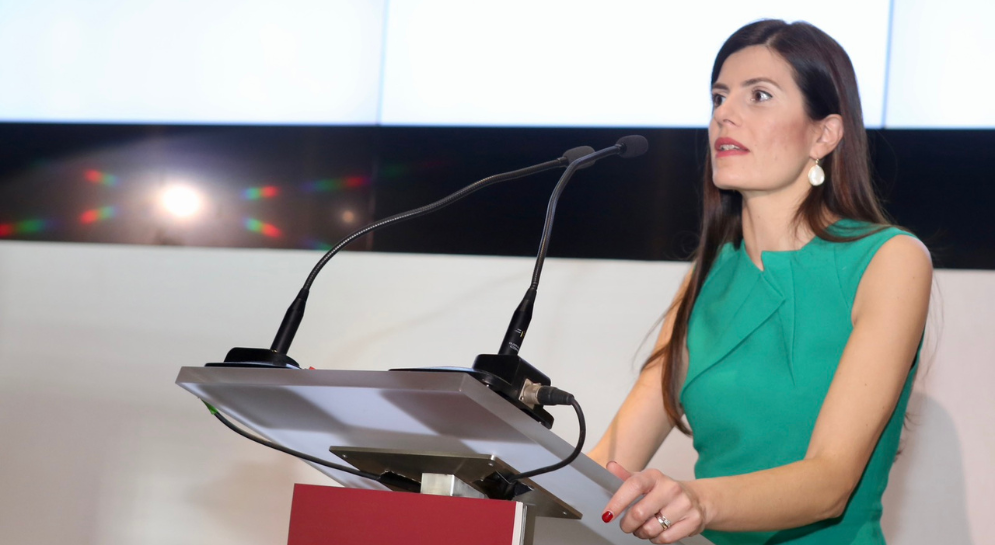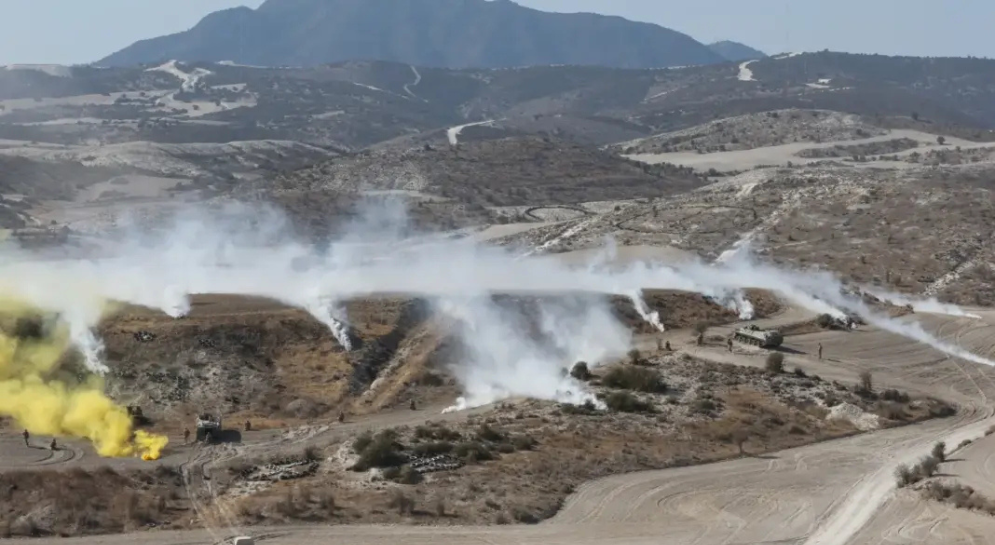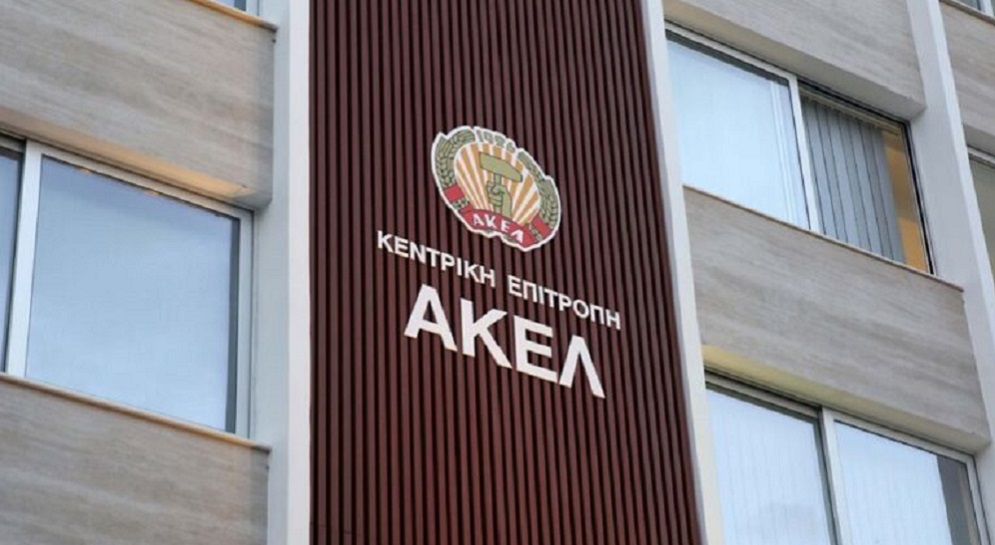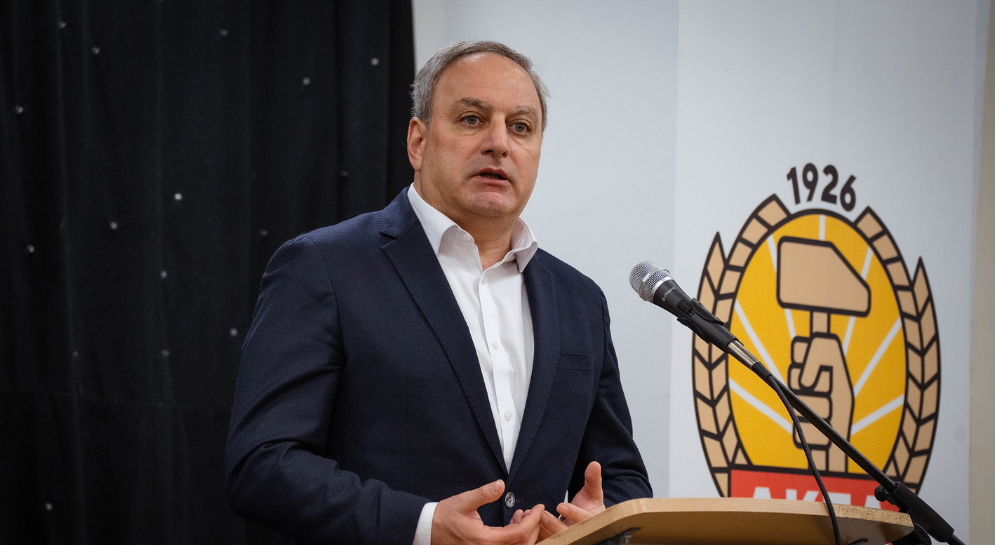
Interview with Stavri Kalopsidiotou, member of the Cyprus Problem Office, International Law expert and member of the C.C. of AKEL
For a more social Europe
Sunday 24 March 2024, ‘Politis’ newspaper
QUESTION: What is the European Union (EU) for AKEL?
SK: Undoubtedly, the EU of today is neither the Union envisioned by its founders, but neither the Union that the peoples of Europe envision, demand and need.
It is an EU that applies policies on a case-by-case basis, that, despite its founding declarations, is not always grounded in principles and values particularly when important political decisions are taken.
It is an EU that falls short when it comes to rights and freedoms, and that has not demonstrated any genuine institutional will to address the democratic deficit and citizen’s distancing from decision-making centres.
Of course, it is given that for the citizens of the Republic of Cyprus, the EU is an important arena to assert and struggle in our efforts to reunify our country and people, Greek Cypriots and Turkish Cypriots.
It is also a fact that as regards modern rights, EU law has significantly strengthened national legislation. The pressing task is to implement them in practice.
QUESTION: What is the two AKEL MEP’s contribution to European citizens and Cyprus, taking into account that they belong to the small political group of the Left in the European Parliament?
SK: It is true that the Left Group in the European Parliament is small in terms of numbers. However, it is also true that its positions on numerous issues, notably social policy, rights, the environment and so on, have a wider resonance. Furthermore, it is an undeniable fact that the respective AKEL MEP’s, through their activity and the special weight of AKEL’s political credibility on the Cyprus problem, as a steadfast force that believes in and fights for a solution, play their own role in promoting principled positions.
It is no coincidence that as the Central Committee of AKEL we had initially set as our main goal retaining two seats, which has been the case since 2004. And I am optimistic that the positions of the Left and the broadness of our electoral list will be the springboard for fulfilling this objective by recording significantly increased percentages since the last parliamentary elections.
I must confess that I’m particularly pleased that AKEL is the first Party to put into practice the position for a gender balance on a European Parliamentary list, even if the path in society itself is still long and difficult for women.
QUESTION: What priorities has AKEL set in the European Parliament?
SK: Unquestionably, the issue of the Cyprus problem. Our national problem is the compass that guides our actions, both in Cyprus and in Europe.
Other than that, as a force for assertion we continue to put high on our agenda a more social Europe, with an expansion of labour and other rights, the effective implementation of policies and legislation promoting gender equality, ensuring protection from all forms of discrimination on the basis of origin, beliefs and sexual orientation and last but not least, the application of policies that will reorient EU foreign policy on the basis of international law, to the benefit of the peoples of Europe and not of a cynical directorate of Eurocrats.
QUESTION: Who is the Left of Europe today? Has it modernized itself?
SK: Parties and forces that do not modernize themselves, that do not listen to the messages our era conveys, that do not respond to the contemporary challenges and stakes our societies face, are doomed to decline. And there are many such examples in the spectrum of the Left which without question is not homogeneous but plural.
As AKEL I believe that we have taken on the messages citizens have sent out. We have embarked on a course of reconstruction, of opening up to Cypriot society, of applying modern and more effective methods and procedures, both as far as party organisation and decision-making issues are concerned.
Maintaining our political identity, I believe that our positions on a number of key issues, such as the Cyprus problem, rights, ecology, sustainable development and the redistribution of wealth, are embraced by broader forces beyond our traditional spectrum. This was demonstrated by the result achieved in the presidential elections as well.
And I am optimistic that with our work and the submission of proposals and presentation of a positive agenda on both European and national issues, we can be the winners of the elections on the evening of 9 June.
QUESTION: Do you expect any developments on the Cyprus problem?
SK: We certainly need positive developments. It would be quite premature and risky to attempt any predictions at this stage. The appointment of the UN Secretary General’s personal envoy on Cyprus already represents a step forward, considering that we are going through the longest negotiating deadlock in the history of the Cyprus problem. The search for the prospect of a resumption of the negotiations on the initiative of the UN Secretary General A.Guterres himself, who knows exactly what was negotiated up to the end of the 2017 Conference, is of great importance, whilst acknowledging at the same time the difficulties that do exist.
Turkey’s intransigent stance, the shift noted in its official position towards a two state solution, dangerously undermines the prospect of bringing the Cyprus problem back on the track of negotiations and a solution within the agreed framework.
But there are also circumstances that, under certain preconditions, can push Turkey to change its stance, as it has done in the past. And they must be made use of in a creative way.
QUESTION: Does Turkey have reasons to return to the negotiating table for a solution on the basis of Bizonal, Bicommunal Federation?
SK: It may appear that Turkey doesn’t, given its outright refusal for a solution within the agreed framework, coupled with the simultaneous consolidation of the partitionist fait accompli in a systematic and methodical manner, as well as its extremely provocative and illegal actions.
However, if we consider with absolute clarity at the stance taken by Mr.Anastasiades since 2017, from the questioning of the Guterres Framework to the undermining of political equality and effective participation, we will identify what is the alibi the Turkish side invokes.
For Turkey to stop insisting on a two state solution virtually unhindered, or attempting to convince the international community that the resumption of negotiations depends on the acceptance of the ‘sovereign equality’ and equal international status of the two communities, then convincing commitments to the convergences recorded so far and initiatives that create real incentives must be taken.
QUESTION: Is the Greek Cypriot side convincing with regards its intentions in relation to the Cyprus problem?
SK: If you are asking me whether Mr. Christodoulides has managed to restore the Greek Cypriot side’s credibility, permit me to hold a small basket. On the one hand, because he was at the forefront together with Mr. Anastasiades during crucial moments on the Cyprus problem and, on the other hand, because in the time that has passed since he took over the government of the country, there have been occasions when his rhetoric has not been very clear.
Preserving the body of work achieved
QUESTION: Has the Cyprus problem changed since Crans Montana and what has it left the Greek Cypriot side with?
SK: Undoubtedly, the legacy of Crans-Montana must be preserved. Namely, the convergences that have been recorded so far, the Guterres Framework and, we hope, the proposal for the mechanism for the implementation of the solution. As long as they are combined, precisely as the UN Secretary General himself understands them, they point to a clear direction as regards the important aspects of the Cyprus problem and lay the foundations for negotiating only those issues that are pending. Such as effective participation in low-level political bodies of the central state, the conclusion of the criteria on property and what will happen to the military contingents of ELDYK and TOURDYK.
Is there perhaps any other more powerful and available bulwark against the Turkish position for a two state solution than the position of the UN Secretary General himself on the importance of the body of work that has been agreed in the negotiation procedure?
We hope that his questioning by parties participating in the coalition government will not negatively determine Mr. Christodoulides’ final position. Because such a development, if it does not negatively affect the prospect of the resumption of negotiations, will ultimately undermine a number of delicate balances and lead to the overall questioning of the convergences by the Turkish and Turkish Cypriot sides. Something that unquestionably does not favour anyone who genuinely aspires to the liberation and reunification of Cyprus.
Let me recall that on the issues regarding the Treaty of Guarantee and the withdrawal of the occupying troops, the UN Secretary General’s statements reflect the Greek Cypriot side’s long standing demands. And of course, no one can predict where an uncertain and dangerous undertaking such as an “out-of-the-box” negotiation will lead to.
QUESTION: How ready are the Greek Cypriots (politicians and people) for a solution to the Cyprus problem and the changes that a solution will bring?
SK: We currently have a local government Reform that has to be implemented and some people are fighting over chairs and ‘kingdoms’ because they have to share their power with others. What is more, the logic of federation, which presupposes real political equality and power sharing, is anathema to a significant section of the political system. And they convey this message to society.
It is precisely for this reason that we insist on the cultivation of a culture of peace and reconciliation whilst at the same time rejecting the dangerous narrative that suggests “its better if we were resign ourselves to half of Cyprus but Greek”.

Kalopsidiotou
Did you mean Kalopsidiotis




